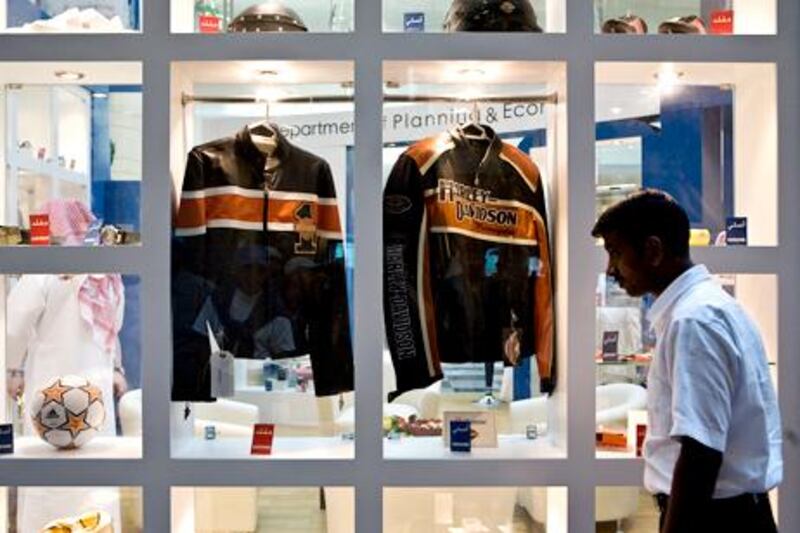The true extent of the flow of counterfeit goods from East to West has been revealed in the latest figures released by European officials.
China, as in previous years, was responsible for the vast majority of imports, accounting for 64.51 per cent. And the UAE, once again features prominently when it comes to transporting fake goods into Europe - including 2.26 million cigarettes packaged as fake brands.
But the UAE's high position on the list masks a more complex story. In many ways the country is a victim of its own success, with major ports like Jebel Ali becoming the obvious route to move goods manufactured in the East to consumers in the West. The Dubai port is the ninth busiest container terminal in the world - and six of the top 10 are in China. According to a special report in the Journal of Commerce, Jebel Ali Port handled 13 million 20 foot containers in 2011.
Almost all the fakes listed by the EU as coming from the UAE are actually made elsewhere. They are imported into the country using one set of paperwork and re-exported to their final destination at a later date under another. It is a system that effectively masks their true origin.
As a result, the country jumped from the fifth place in 2011 - responsible for 2.8 per cent of seized items in the EU - to second, at 8.37 per cent. Overall, however, there was a big drop in the total number of goods detained, from 115 million articles in 2011 to 40 million last year. This 40 million came from 90,000 cases, where each case refers to a single interception.
"The issue is not something specific for intellectual property rights infringements but applies to any illegal shipment," says Jonathan Todd, a spokesperson for the European Commission. "It's often the case that infringers mix shipments of legal and illegal goods."
The UAE was listed as the port of origin for more than 11 per cent of all the fake body care items, including razor blades, shampoo, deodorant, toothbrushes and soap, and 7 per cent of perfumes and cosmetics. China, Hong Kong and Turkey were responsible for the rest.
These items, Mr Todd says, cause particular concern. "Counterfeit products such as food and beverages, body care articles, medicines, electrical household goods and toys are potentially the most dangerous to the health and safety of consumers. In 2012 these accounted for 12.7 per cent of detained articles by customs."
Despite the UAE's importance as a trading hub, at present the EU does not work with the UAE when tackling the problem, Mr Todd admits. "There are no particular projects with the UAE or other countries in the Middle East. However, new EU rules will enter into force as of January 1, 2014, which will impose higher standards of intellectual property rights at EU borders.
"This will encourage and facilitate greater cooperation with countries outside the EU, including the UAE," said Mr Todd.
munderwood@thenational.ae
EU fights back against fake goods from UAE
It is worth billions to the fakers. But while the figures are sobering for the UAE - second only to China - they mask the true problem. Mitya Underwood reports

Editor's picks
More from the national





